#christian mysticism
Text

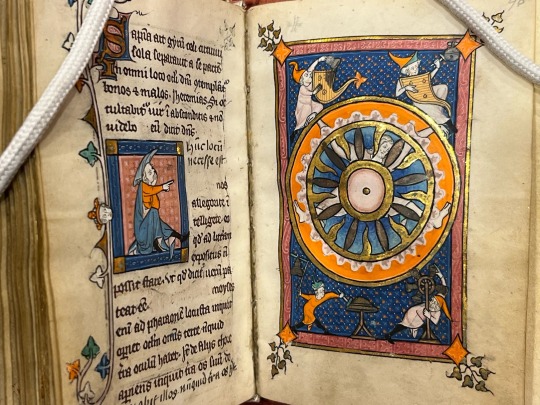
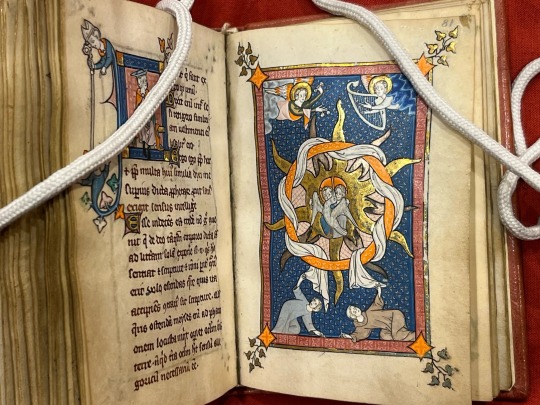
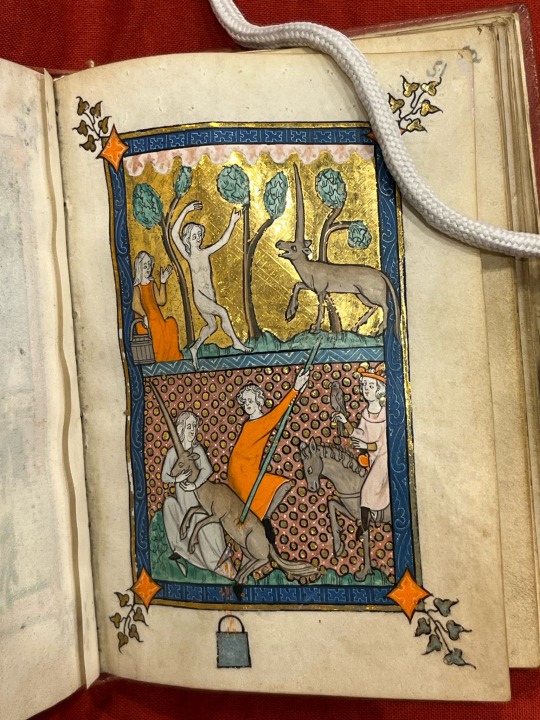
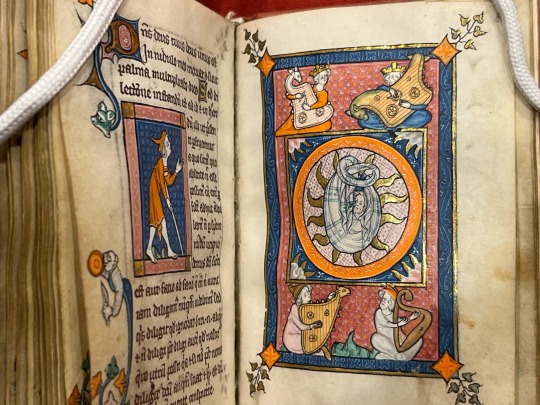


Amazing Christian mystical art from a medieval manuscript!
@cryptotheism Get a load of the colors on this one! I don’t know which one this is because I didn’t call it up myself (and I think this is one of the ones you needed special permission for, anyway), but it’s incredible.
2K notes
·
View notes
Text
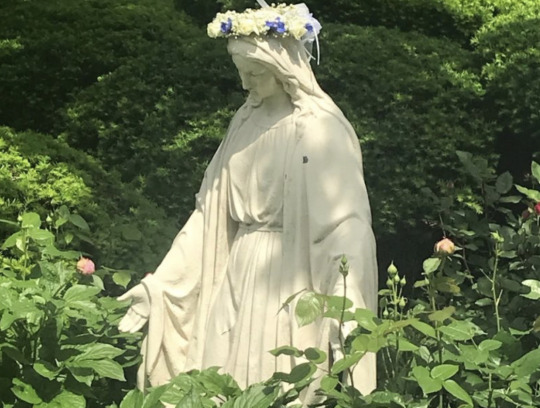
mary in a flower crown, st gabriel of the sorrowful mother, pennsylvania, usa
#christian blog#christianity#spirituality#theology#christian faith#catholic#catholiscism#catholic art#christian art#sculpture#saint#saints#catholic aesthetic#catholic saints#christian mysticism#christian aesthetic#mother mary#virgin mary#mary#pennsylvania#spiritual aesthetic#spiritual art#cottagecore#fairy cottage#cottage aesthetic#divine feminine#christian femininity#christopagan#christian witch
2K notes
·
View notes
Photo

Caroline Walker Bynum, The Female Body and Religious Practices in the Later Middle Ages
3K notes
·
View notes
Text
Almost started crying because I was thinking about how I'll never be able to physically kiss Jesus's hands (I would have made a superb ecstatic mystic). But my boyfriend's strong hands are right here, in mine. And I can talk to my bestfriend late into the night just like I would talk to God in a prayer and her voice will answer back. I think it's imperative that we take our love and devotion to the divine and project it outward. What is the point of devoting your life to 12 hrs of prayer a day or poverty or silence if it does not move you to enrich the lives of others? Serving the Light we find in each other is the chief way to serve the Savior. Kiss Him by kissing the hands of those you love, see His face in the ones who need you, listen when He speaks through others, and so forth
#mysticism#christian panentheism#christian mysticism#religion#godblr#theology#autumn preaches#the love the love the love#love thy neighbor#love god love others#panentheism
557 notes
·
View notes
Text

Simone Weil, Gravity and Grace, 1947
437 notes
·
View notes
Text
Love people even in their sin, for that is the semblance of Divine Love and is the highest love on earth. Love all of God's creation, the whole and every grain of sand of it. Love every leaf, every ray of God's light. Love the animals, love the plants, love everything. If you love everything, you will perceive the divine mystery in things. Once you perceive it, you will begin to comprehend it better every day. And you will come at last to love the whole world with an all-embracing love.
—Fyodor Dostoyevsky, The Brothers Karamazov
#fyodor dostoevsky#the brothers karamazov#divine love#love#god#lgbtq christian#lgbt christian#queer christian#progressive christian#progressive christianity#christian mysticism#christian#christianity#quotes
362 notes
·
View notes
Text
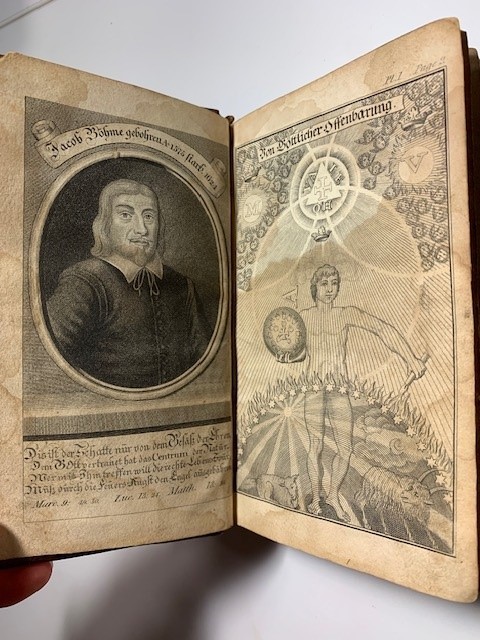
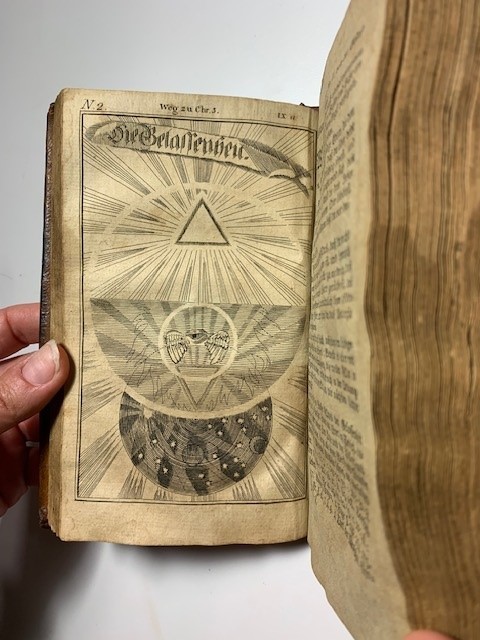
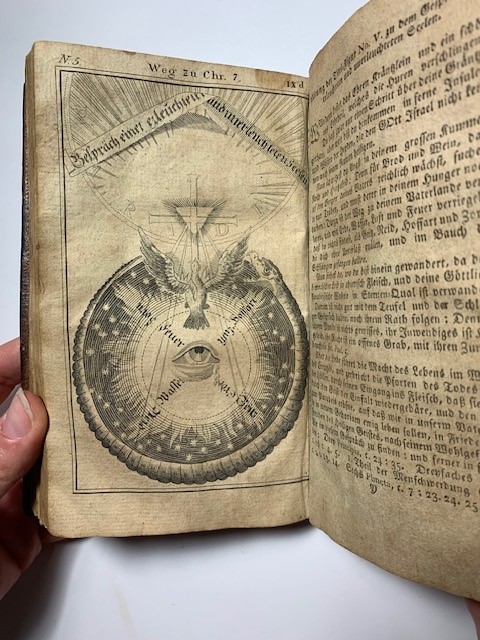
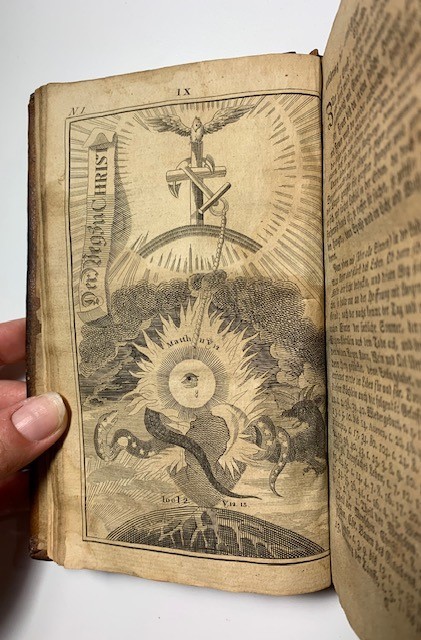
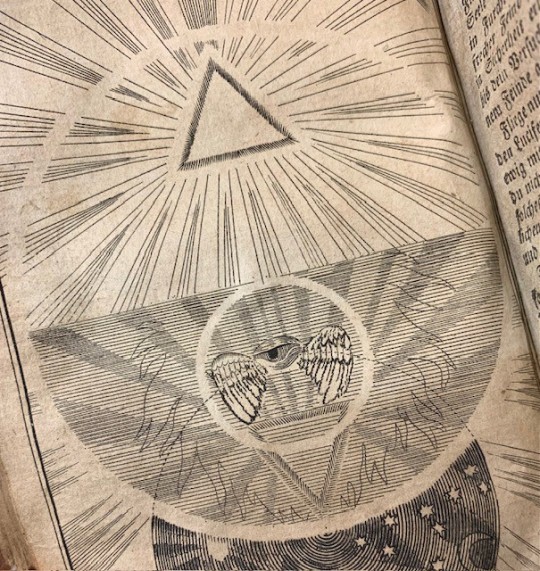
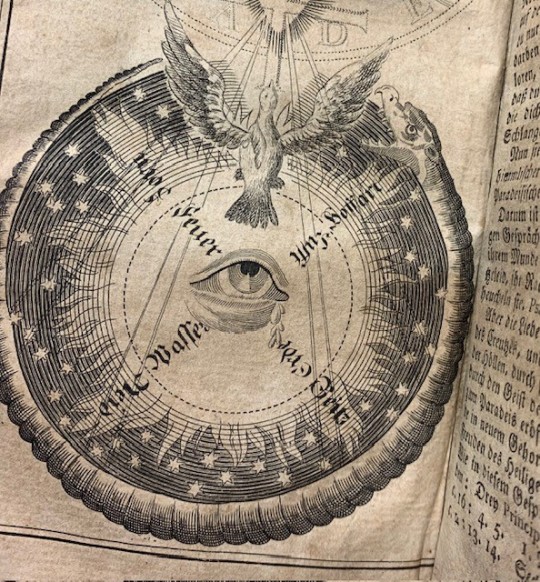
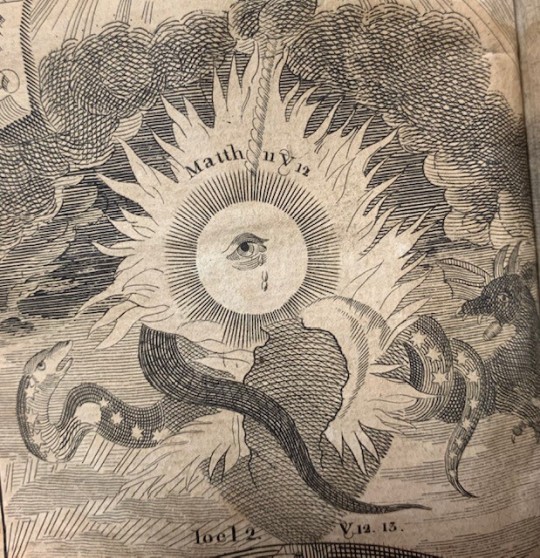
Mystic Monday: Jakob Böhme in America
We've posted before about Jakob Böhme (1575-1624), a Lutheran theologian who experienced a direct revelation from God. Though most popular in Germany, this early 19th century printing shows that his books were also read in America. As with earlier editions, the work is heavily illustrated with symbols and diagrams to help the reader (or so it is hoped).
Böhme, Jakob. Christosophia. oder Der weg zu Christo. Verfasset in neun büchlein, nun in acht zusammen gezogen... Die 1. americanische aufl. Ephrata in Pennsylvanien, Gedruckt bey J. Ruth, 1811-12.
#mystic monday#rare books#19th century#jakob bohme#christian mysticism#symbols#mystical symbolism#bookhistory#mysticism
107 notes
·
View notes
Text
Honestly? I think there should be more folk horror cinema inspired by The Bible. This shit is so eldritch and it goes hard.
#folklore#the bible#prefereably from a historically informed point of view#folk horror#cinema#folk tales#the bible as folklore#the bible as literature#christian mysticism#christian folk magic#eldritch horror#folk magic#spirituality
270 notes
·
View notes
Text
“The longing to love the beauty of the world in a human being is essentially the longing for the Incarnation. It is mistaken if it thinks it is anything else. The Incarnation alone can satisfy it. It is therefore wrong to reproach the mystics, as has been done sometimes, because they use love’s language. It is theirs by right. Others only borrow it.”
- Simone Weil, Waiting for God
210 notes
·
View notes
Text

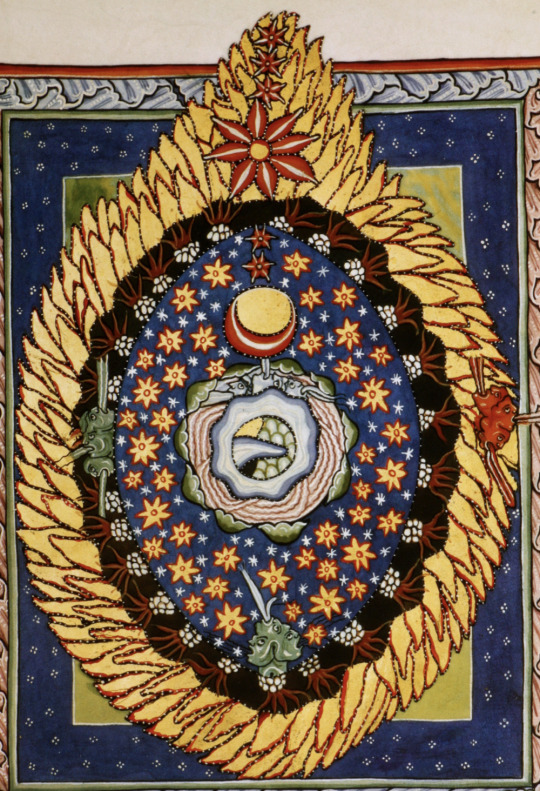

Deuteronomy 32:18 and Job 38:29-30 paired with St Hildegard's vision of the universe as a Cosmic Egg (and, let's be real here, Cosmic Yoni).
#st hildegard#christian mysticism#yonic symbolism in christianity#divine feminine#cosmic egg#cosmic womb#divine feminine in christianity
561 notes
·
View notes
Text
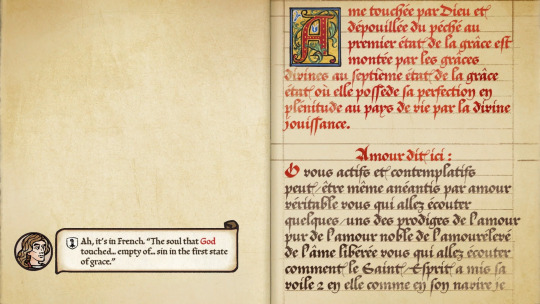

I'm sure someone has posted about this already, but I was curious about the book Sister Illuminata wanted to destroy. Long post under the cut.
The book is "The Mirror of Simple Souls" and it is a long poem written by Marguerite Porete around 1300. Porete was an educated woman associated with the beguine movement (a lay religious order), which allowed her more freedom to write and travel than most women of the time had.
The poem is a work of Christian mysticism and deals with "agape," or Divine love. It's unique in a couple of ways, not only because it was authored by a woman. It was in Old French at a time when Latin was the only approved language for religious texts, which was already a strike against her in later investigations. The book was also very popular - until, of course, it was condemned by the church. All existing copies were seized and burned, and circulation of the text was banned.
Marguerite Porete was arrested by inquisitors, likely around 1308 after she gave a copy of her book to a bishop. She was tried before William of Paris, the Inquisitor of France, where she staunchly refused to cooperate with any of the proceedings. She would not recant her views nor commit to stopping circulation of her work. She was burned at the stake for heresy in 1310.
I don’t understand it well, but from what I can wrap my tiny little brain around, the book essentially covers the way to unite one's soul with God, and includes characters like Love, Reason, and the Simple Soul. By giving up reason, she says, the soul can be filled with only Love and achieve oneness with God, transcending earthly troubles. She says a soul that is filled only with God's love has its sinful nature erased and therefore cannot sin - this is likely where the claims of heresy arose.
The text did survive the inquisition, though, and it was circulated anonymously until Porete was identified as the author in the 1940s. It is a foundational text for people studying Christian mysticism and the beguine movement.
(And if you wanted a translation of the above images, here is my own shoddy attempt:
"The soul touched by God and empty of sin in the first state of grace is ascended by the divine graces to the seventh state of grace, the state where it possesses its perfection in full in the land of living by divine enjoyment.
"Love says here:
"O, you active and contemplative, perhaps even annihilated by true love, you who will listen to those wonders of pure love, noble love, uplifted love of the liberated soul, you who are going to listen how the Holy Spirit has set his sails both in it [the soul] as in his ship. I beg of you out of love: listen, with great application, to this subtle understanding that is within you, and with great diligence. Otherwise, for lack of being so disposed, all those who hear this will misunderstand it. Now understand, with humility, a simple example borrowed from mundane love, and apply it equally to divine love.")
#pentiment#medieval history#the mirror of simple souls#marguerite porete#long post#christian mysticism#if anyone has more insight on the content of the text and the metaphysics I’d be interested!
338 notes
·
View notes
Text

from iwishyoucouldtakemeupstate on instagram
#christian blog#christianity#spirituality#catholic#christian faith#catholiscism#christian aesthetic#catholic aesthetic#catholic memes#christian memes#queer christian#christian witch#christopagan#christian mysticism#folk catholicism#folk christianity#our lady of sorrows#divine feminine
250 notes
·
View notes
Text

Simone Weil, 'Void and Compensation' (in Gravity and Grace, trans. Emma Craufurd)
4K notes
·
View notes
Text
Be still and know that I am God
Be still and know that I am
Be still and know
Be still
Be
#Johannite Christian#gnostic christian#contemplative christianity#contemplative#christian mysticism#mysticism#gnosis#christianity#progressive christianity#lgbtq christian#queer christian#gnosticism#religion
137 notes
·
View notes
Text
"Autumn why do u cry when you take the church's donations to the food bank" "why do u get so emotional when you sort donations for the congregation's college students" because i was hungry and you fed me. because i was thirsty and you gave me something to drink. because whatever you did for the least of these, you did for me. because in gods kingdom, the last must be put first. because this is the purest religious experience i can have and the most direct communion with the divine.
#also because stuff like this shows that im not in this alone#that i and we are so beloved by others#mysticism#christian mysticism#theology#christian#liberation theology#progressive christian#the love (etc)#i see god in everything#godblr#endless grace#autumn preaches#the last will be first#beatitudes
109 notes
·
View notes
Text
I saw that [our Lord] is to us everything which is good and comforting for our help. He is our clothing, for he is that love which wraps and enfolds us, embraces us and guides us, surrounds us for his love, which is so tender that he may never desert us. And so in this sight I saw truly that he is everything which is good, as I understand.
— from Revelations of Divine Love by Julian of Norwich, the short text. Translated by Edmund College and James Walsh
#revelations of divine love#julian of norwich#st. julian of norwich#mystic#mysticism#christian mysticism
216 notes
·
View notes